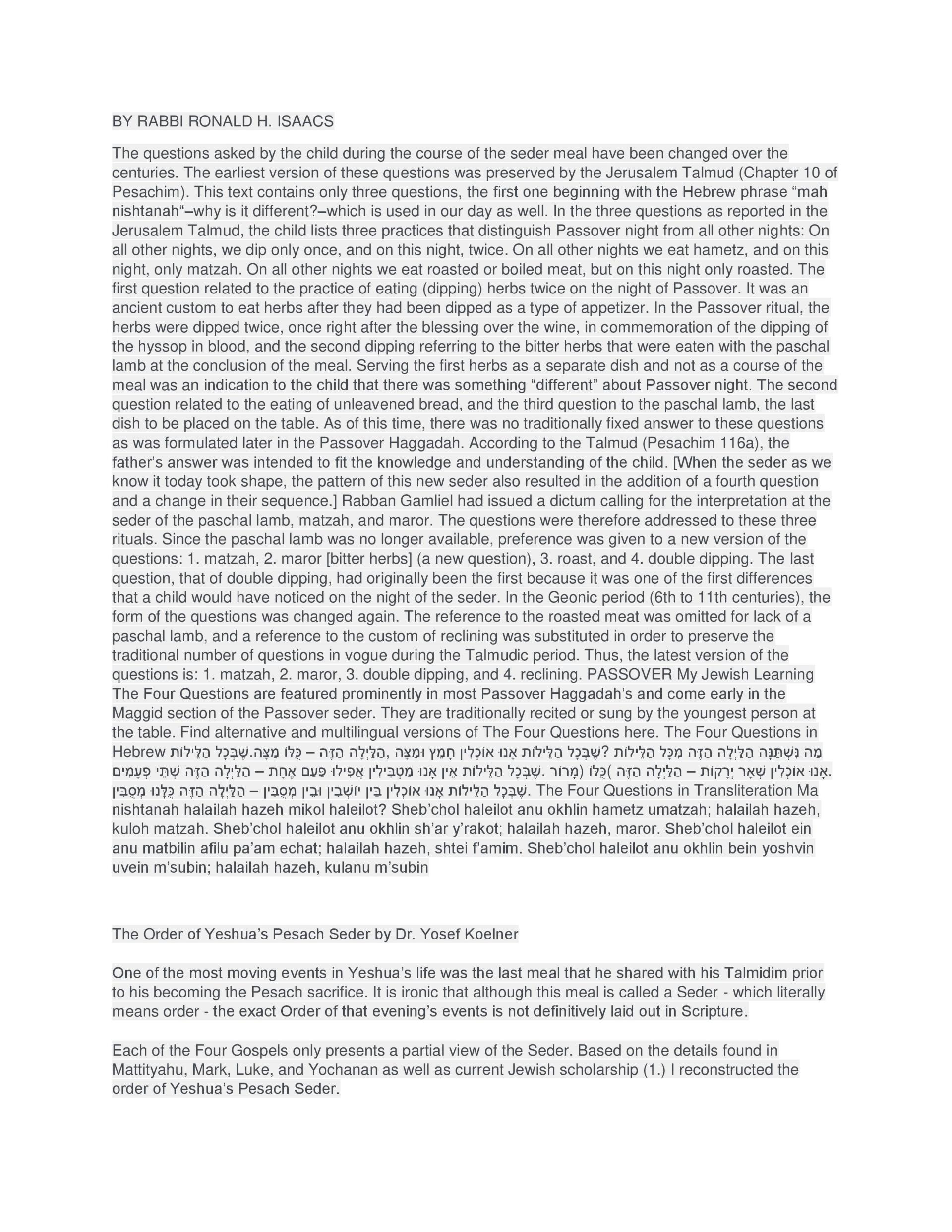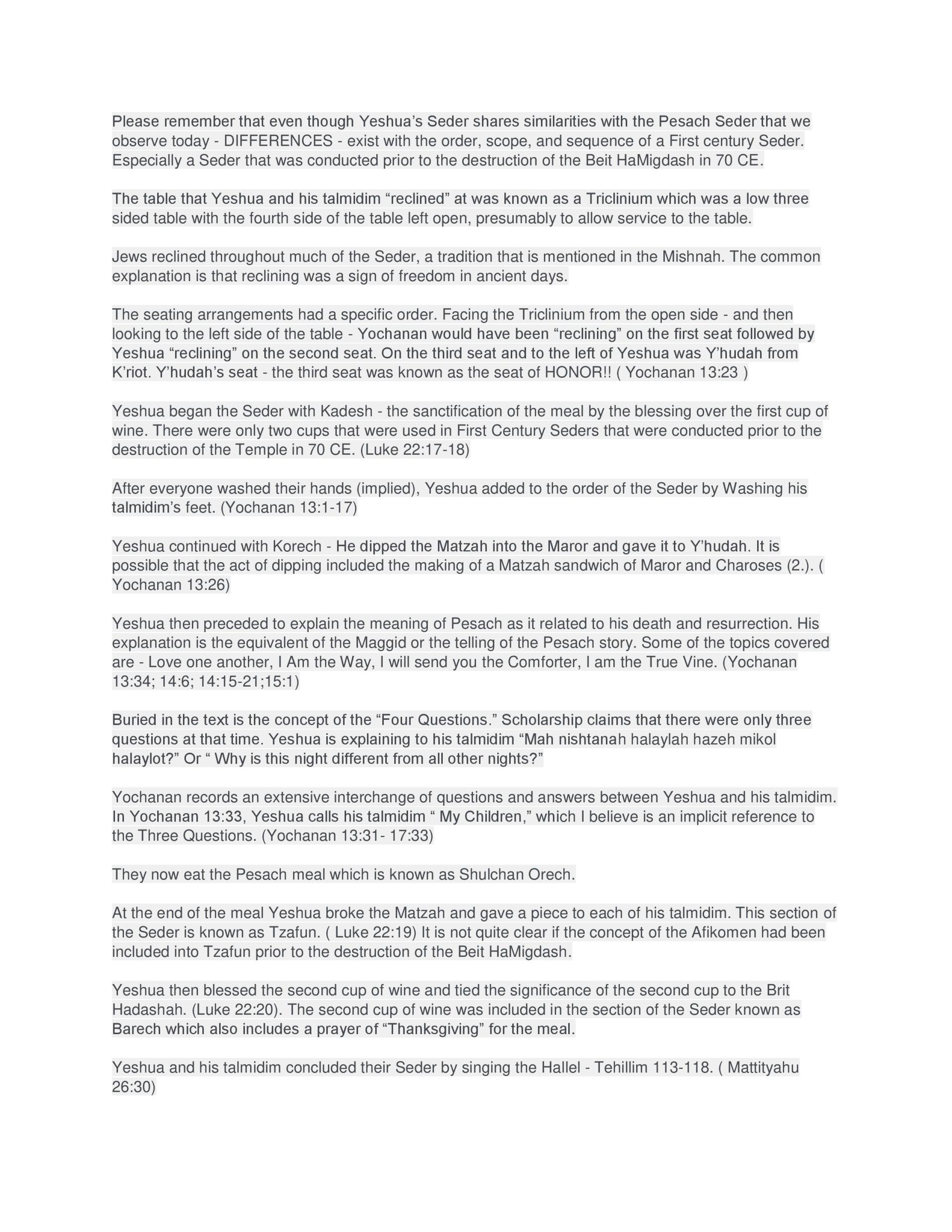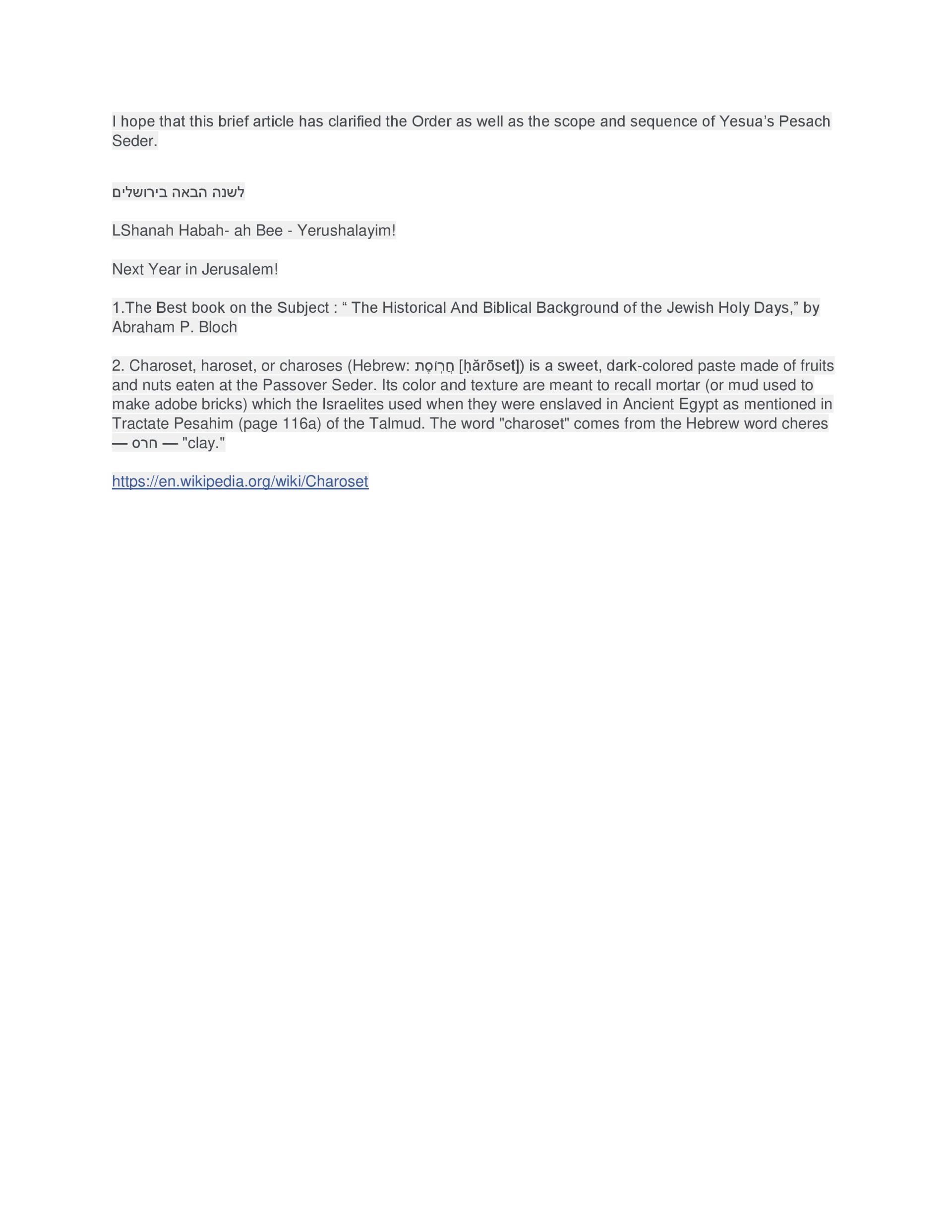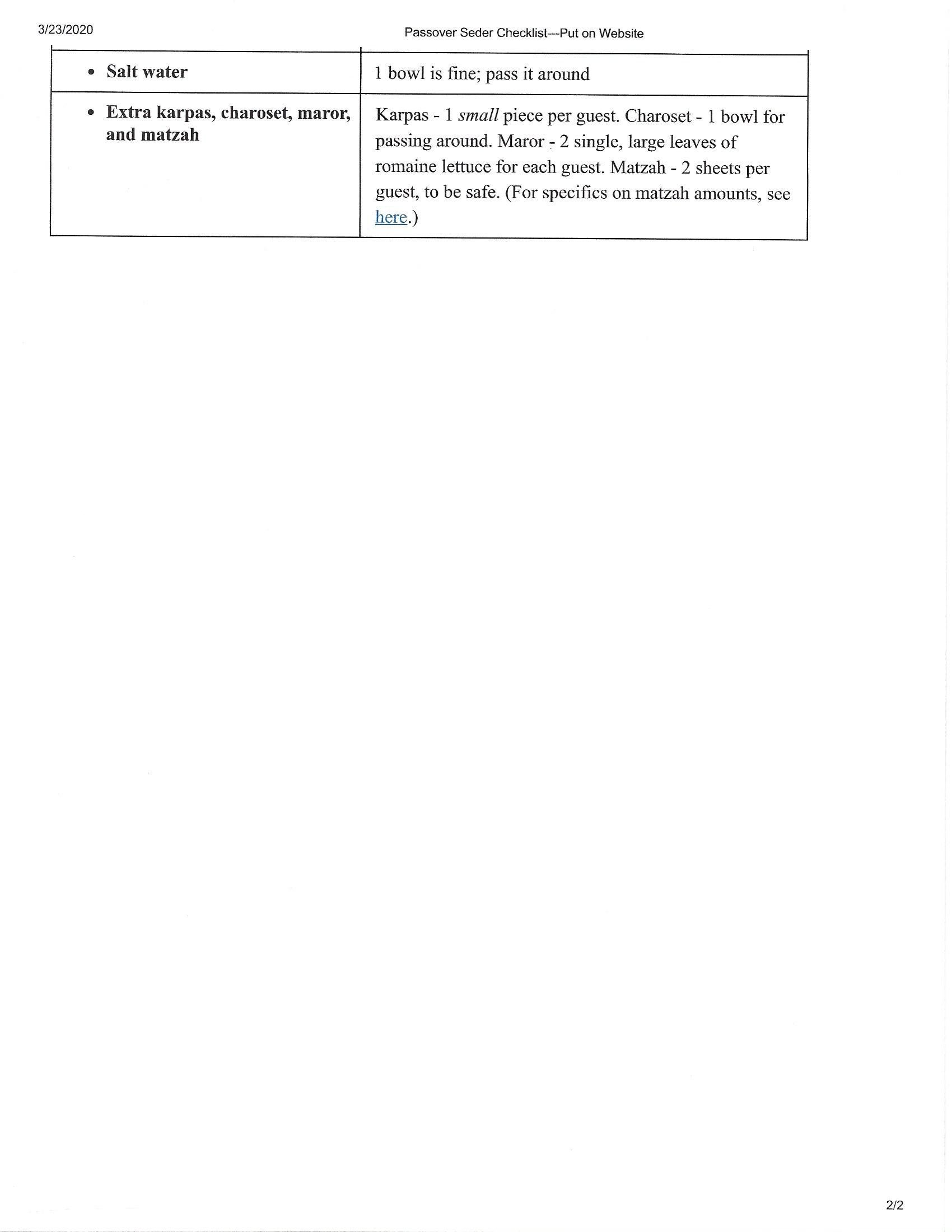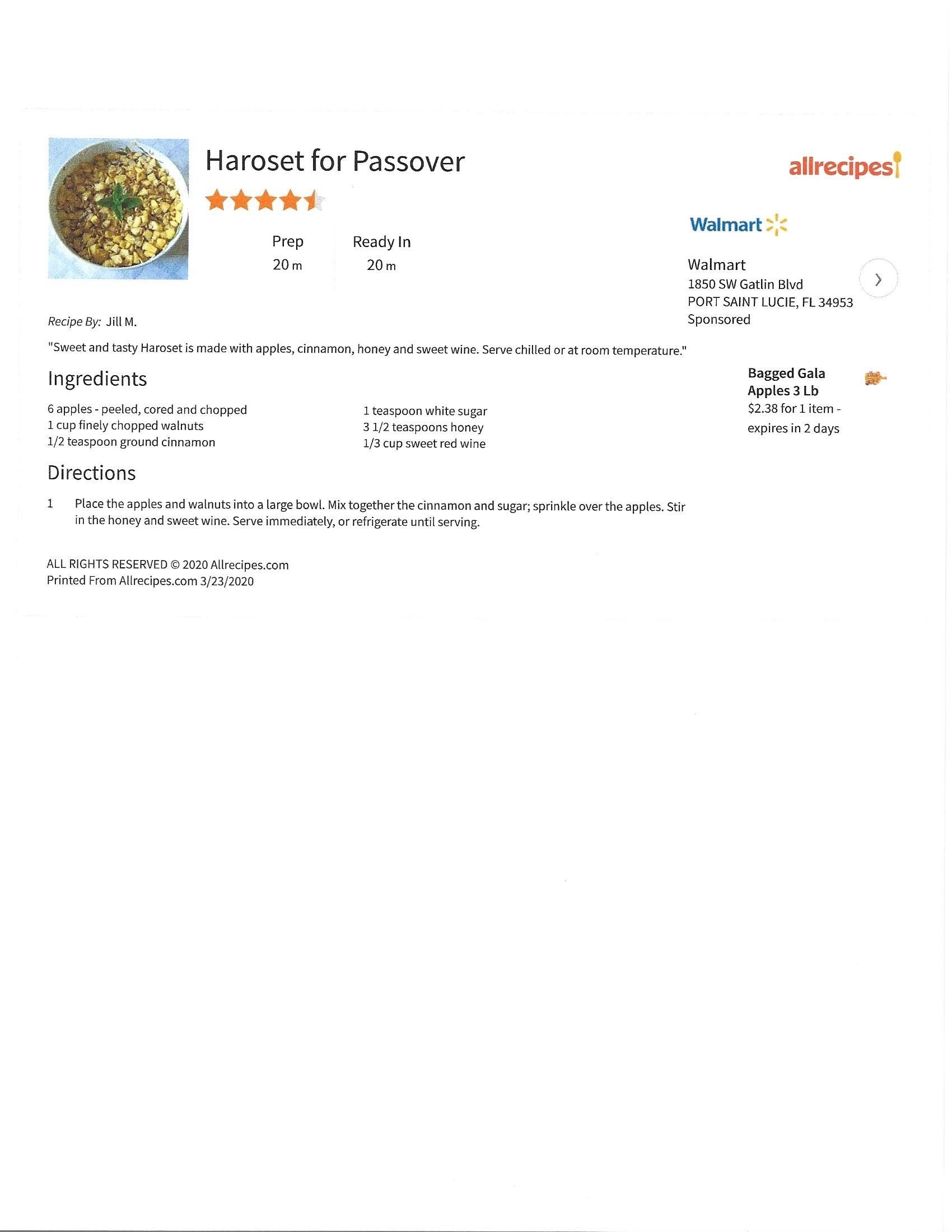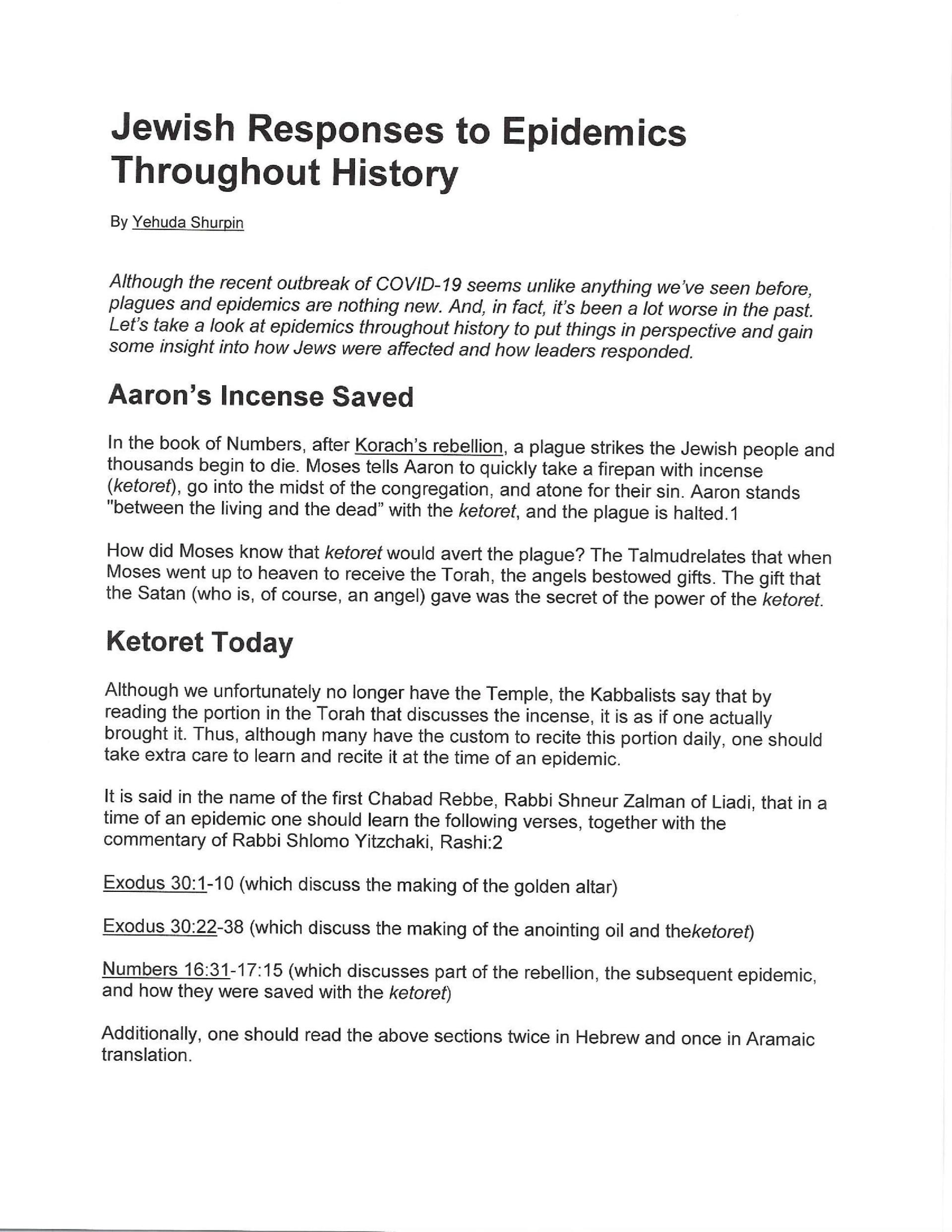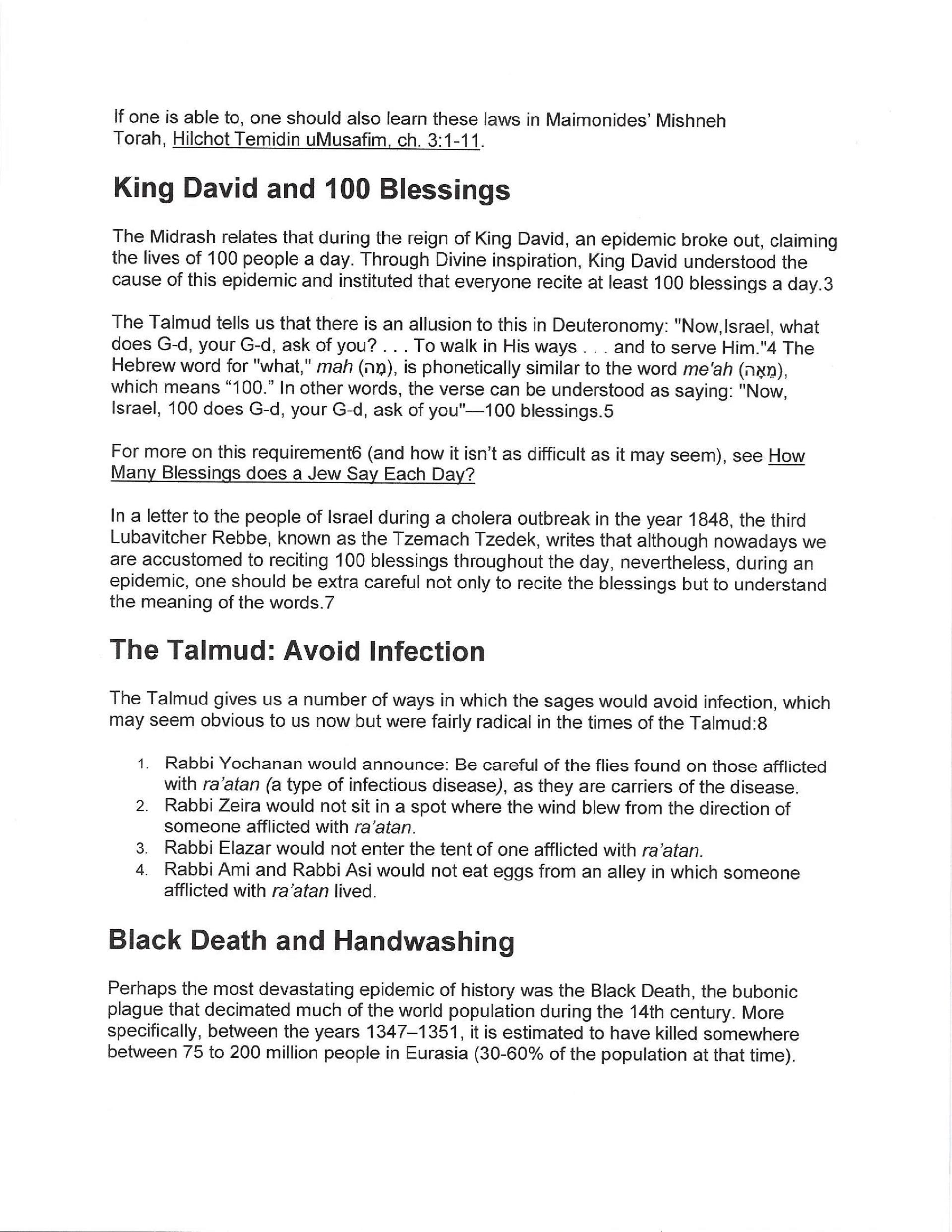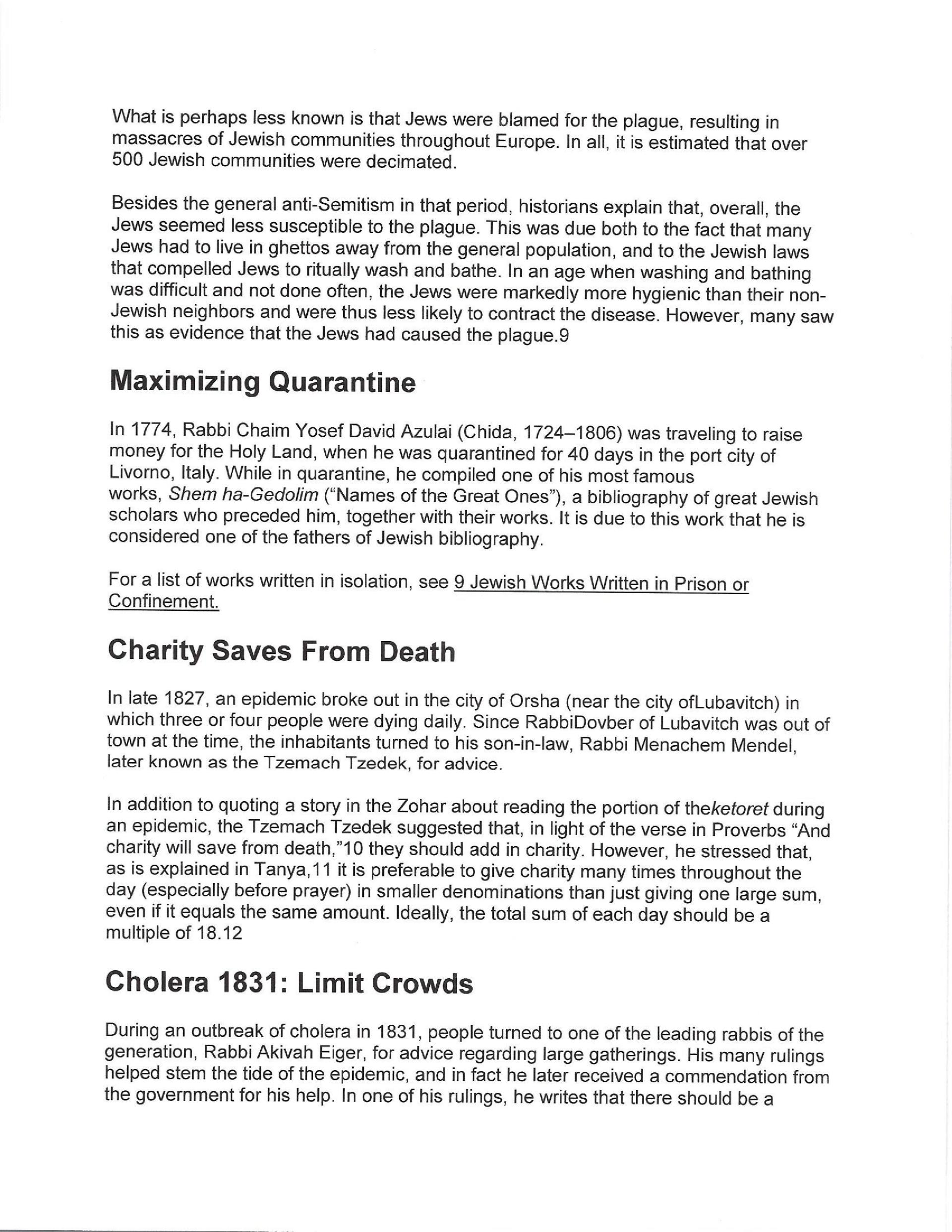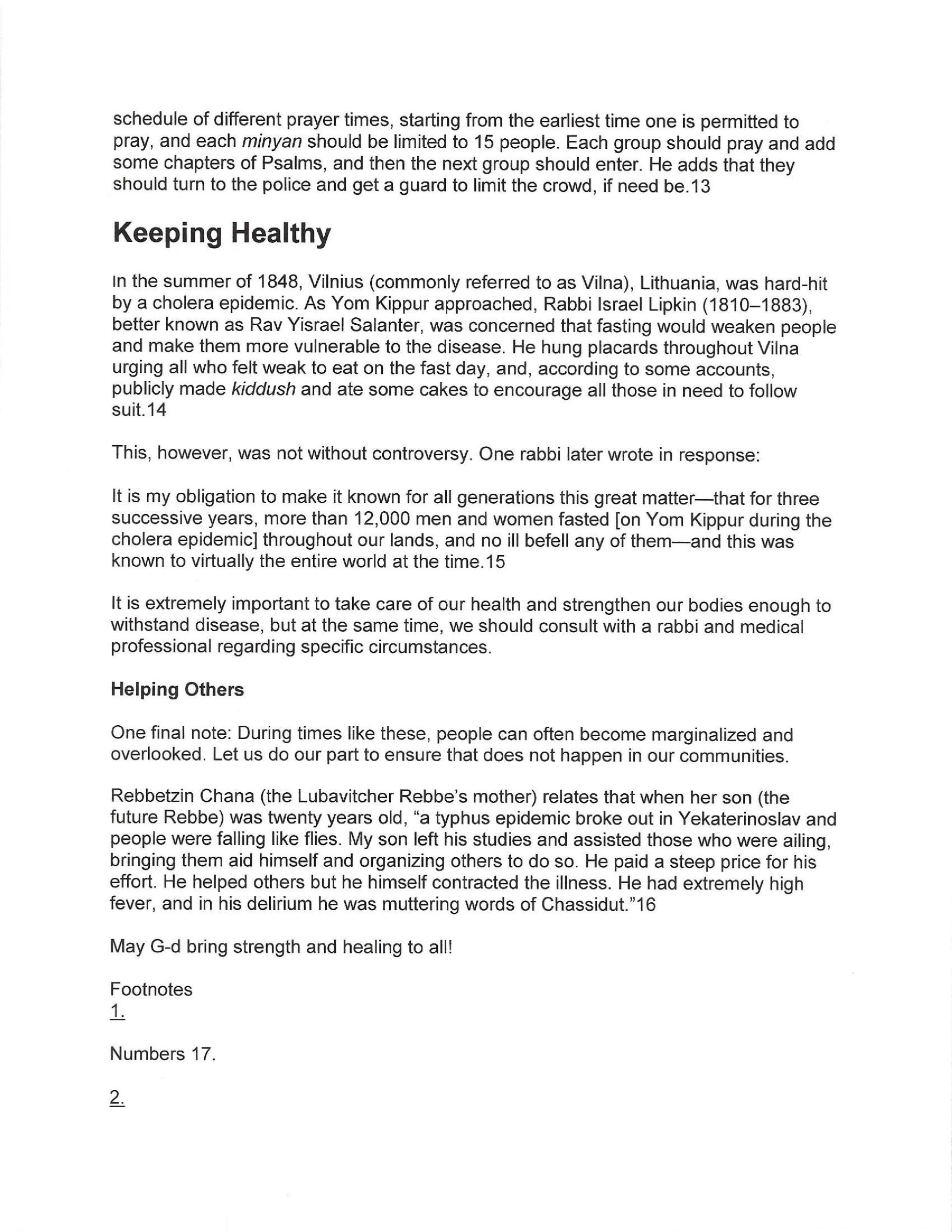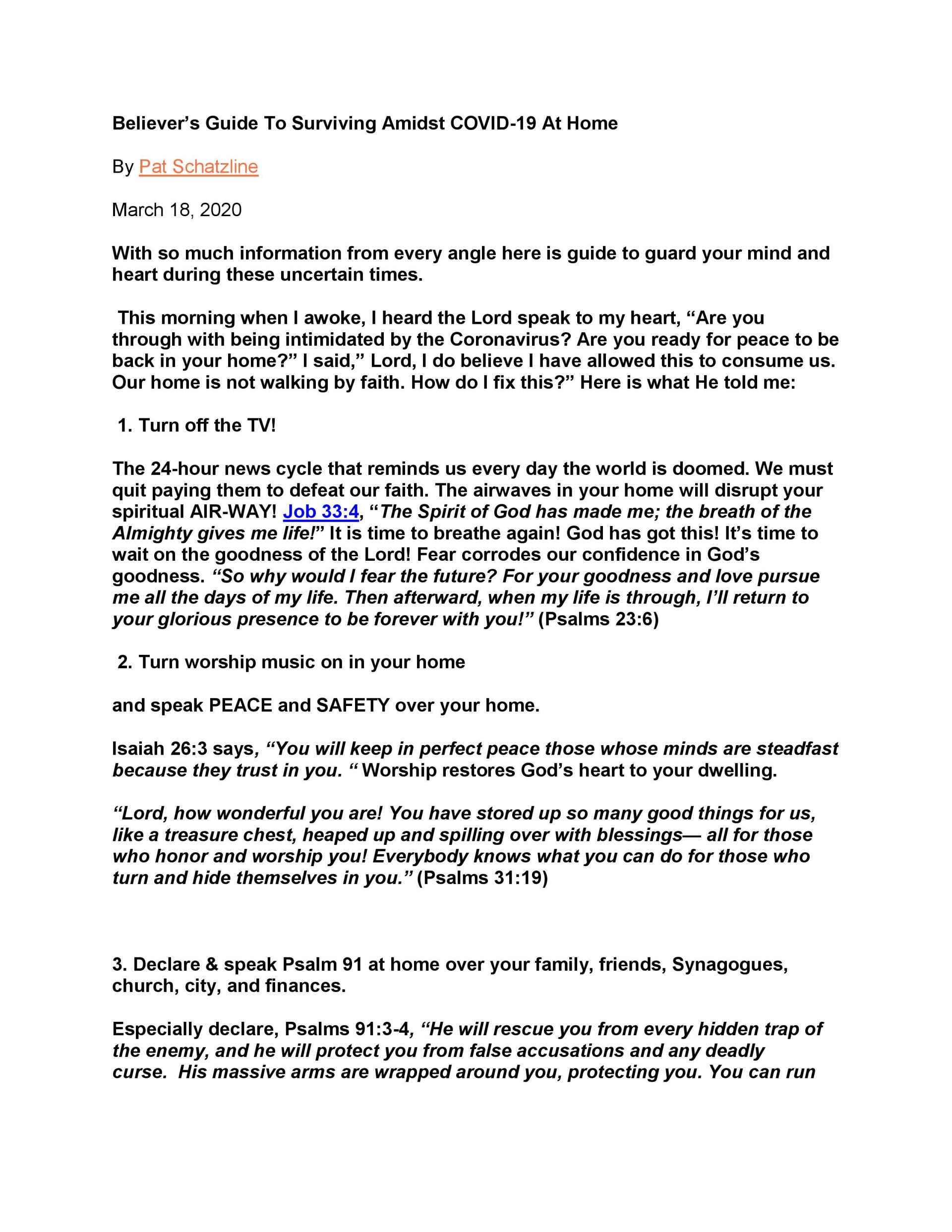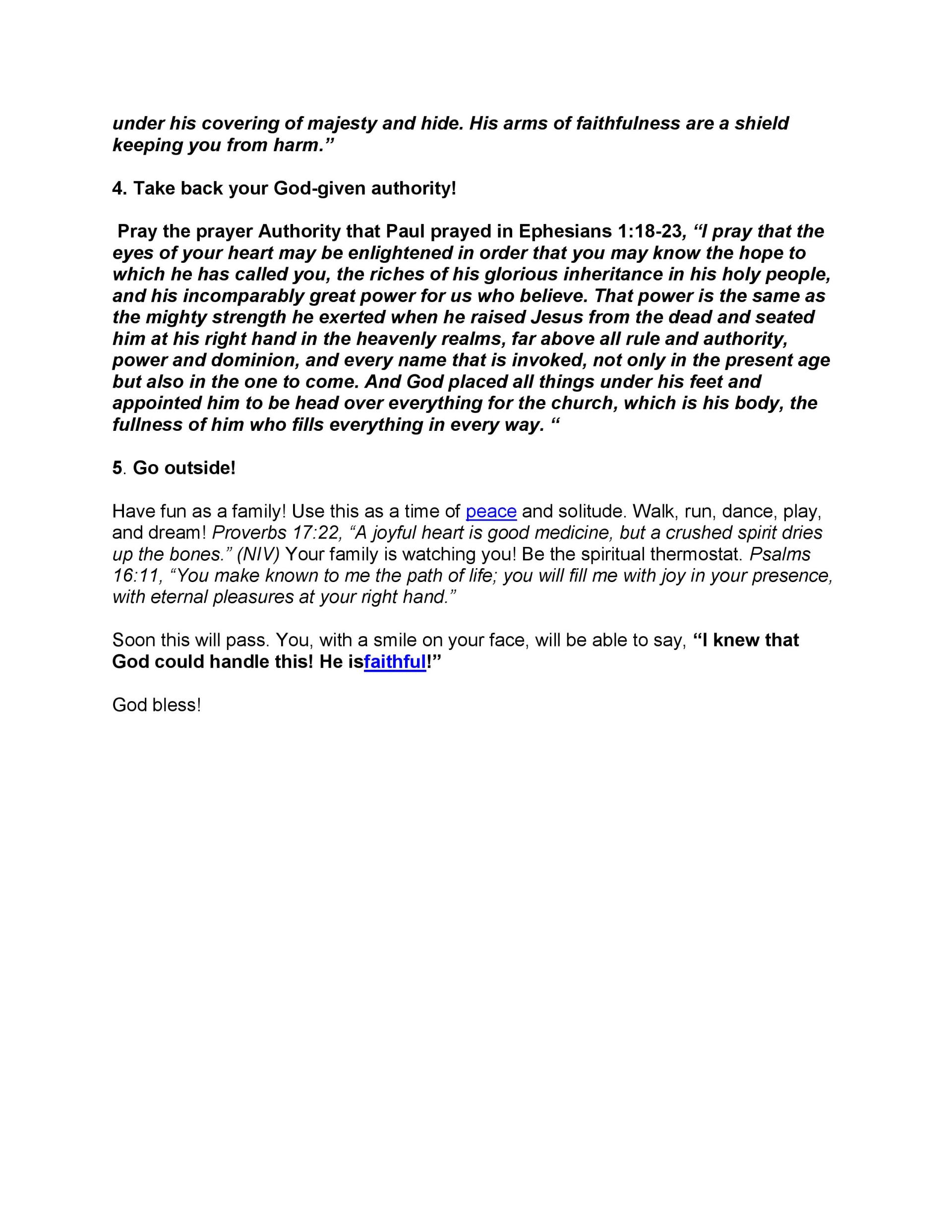• PAINFUL CANCELATIONS:
In this season, weddings and graduations are impacted. Even funerals can’t be done in the normal way. However, this is not the time for surrender, but for creativity. Funerals are now being livestreamed. Not the best, admittedly, but it is certainly better than no memorial service. I heard about a wedding in Israel in which – knowing that they could only have 10 persons in the synagogue but could have 100 in a grocery store – they moved the wedding to the local grocery store and the man and woman were pronounced husband and wife in the fresh fruit section. That is creative. And they will have an amazing story to tell their future children. Quite possibly a more “normal” wedding renewal experience can be scheduled later. What about graduations? Perhaps you can ask the school district to work creatively with us the public and arrange for a type of private graduation. Regardless of the event, get highly creative. Figure out unusual ways to make events special, regardless of the present circumstances that prohibit normal celebratory events. • REST: Most people – including me – run too hard, too fast. We don’t slow down. We overextend. We don’t observe God’s Sabbath. We violate it, and then we even have the gall to brag about how hard we work or how little sleep we get. God says, “Stop.” So, He stopped us. 2 Chronicles 36:21 states that “The land enjoyed it’s sabbath rests; all the time of its desolation it rested, until the seventy years were completed in fulfillment of the word of the Lord spoken by Jeremiah.” Why seventy years? The classic answer is that Israel had ignored God’s Sabbath rest each week for 490 years, thus He reclaimed all
those missed Sabbath rests during the exile. In a sense – a very rough sense – many overextended persons are now forced to take the rest that their body missed. Is that a stretch of the concept? Possibly. But I do know this: You – many of you – are being confined to your homes. Rest.
At this season I (we) have been trying new things to keep in touch, i.e. livestreaming, connecting on social media as well as calling on phone.
Shabbat Shalom
PREPARING FOR PASSOVER IN A PANDEMIC
Shabbat Hagadol 5780
The Shabbat before Passover is traditionally a time to review laws and customs in preparation for the festival.
Rabbi Russ Resnik
Passover is above all a story, an appeal to imagination and to memory. We don’t just think and talk about Passover, but we picture and reenact and memorialize it.
Ironically, one of the advantages of our current COVID shutdown is that it helps us imagine the “night of watching” in Egypt, the vulnerability our ancestors felt as they heard cries of anguish over the stricken firstborn in houses all around them. We’re in a far less dire situation of course, but it does helps us understand more deeply the Hebrews’ yearning for divine protection.
This crisis also makes us more aware of the power of shared experience. It’s another irony that during this time of isolation and social distancing, we can feel more connected to others. When I take my dog for a walk in the nearby park, the neighbors who are walking their dogs are friendly and outgoing, at a safe distance of course. Our havurah is meeting through a video feed online, but remains close, sharing concerns and prayers and just being community, perhaps more intensively than before.
So Passover this year might come alive for us in new ways, even though we can’t participate in a big community or extended family Seder. We can still remain connected through technological means, and we can individually enact reminders of the Passover story that Scripture provides.
The Negative Commandment
One reminder is among the most distinctive commandments of Passover: “And no leaven shall be seen among you in all of your territory for seven days” (Deut. 16:4). Hametz or leaven includes all products made of or even containing any of the five grains of biblical times: wheat, barley, spelt, rye, and oats—because these inevitably become leavened. Yeast spores are afloat in the very air we breathe, and will attach to grain without any effort on our part—so the grain itself must be removed.
This commandment has been expanded and modified in various ways over the centuries, and you can learn the specifics through the many resources we can still access, and consult your local rabbi—if you have one—on specific applications. The heart of this commandment is a thorough cleansing from leaven, traditionally completed the night before Passover (Tuesday, April 7, this year). The next morning a symbolic portion of hametz is burned, and the formula is recited, “Any leaven in my possession, which I have or have not seen, which I have or have not removed, shall be as if it does not exist, and as the dust of the earth.”
Cleaning out our homes points to an inner cleansing of leaven. Just as grain inevitably becomes leavened by the surrounding atmosphere, so do we and our communities inevitably become leavened because of our fallen nature, and the fallenness of the surrounding culture in which we live.
Both the rabbinic literature and the B’rit Hadasha see leaven as a metaphor for sin or the evil inclination. “Don’t you know,” Paul asks the Corinthians, “that a little hametz leavens the whole batch of dough? Get rid of the old hametz, so you may be a new batch, just as you are unleavened” (1 Cor 5:6b-7a).
A few years back, I visited Ayts Chayim (now Shalom Boca) Synagogue in Florida just before Passover, and spoke about three strains of leaven afloat in the cultural air we breathe. Today we’re rightly concerned about breathing in the coronavirus, and we’re making every effort to be free of it . . . but these floating spores of spiritual leaven are still all around us.
Just as we’re vigilant to sanitize ourselves against the coronavirus, so we can be vigilant against these three strains that threaten our souls and communities—very much including our Messianic Jewish community—and fulfill Paul’s admonition: “Get rid of the old hametz.”
1. The leaven of Consumerism
The COVID shutdown gives us a new perspective on consumerism . . . because we can’t do as much of it as usual. (Although it’s notable that lots of people responded to news of the expanding pandemic by consuming more stuff—toilet paper, bottled water, canned goods, and—at least around here—potatoes!)
There’s religious consumerism too, which talks God but centers on self, on what’s in it for me, how I get the most bang for my religious buck. We need to watch out that consumerism doesn’t seduce us into a religion about me, with God as a flashy accessory.
2. The leaven of Competition
Leaven “puffs up,” as Paul reminds us. Puffed up people love to compare themselves and compete with others. They (or we) gain in self-esteem by tearing down others. The COVID Shutdown should help us become less competitive and more interested in helping others (even though we might still be tempted to compete for toilet paper). It reminds us that it’s essential to watch out for others, as well as for ourselves.
3. The leaven of inConsistency
Inconsistency is hypocrisy—everybody’s favorite religious criticism. It happens when our behavior doesn’t match our verbiage, as a portrayed by a blogger called “The Jewish Atheist”:
When I was a child, I remembered High Holiday services at our hometown temple as glorified fashion shows and gossip fests. The rabbi and cantor were speaking or singing while the congregants whispered about who looked old, who got divorced, or where so-and-so’s daughter went to college. The most religious time of the Jewish year was reduced to petty arguments, icy glares, and idle chatter.
We can all think of examples even closer to home—in our own communities and personal lives—but the positive commandment of Passover takes care of this.
The Positive Commandment
Get rid of the old hametz, so you may be a new batch, just as you are unleavened—for Messiah, our Passover Lamb, has been sacrificed. Therefore let us celebrate the feast not with old hametz, the hametz of malice and wickedness, but with unleavened bread—the matzah of sincerity and truth. (1 Cor 5:7–8)
We not only get rid of hametz—that’s the negative command—but we eat matzah. That’s the positive command. Sincerity and truth mean that our lives have integrity. How we live throughout the week, how we respond to this crazy pandemic, reflects what we say at services on Shabbat. More than that, it reflects who we really are in Messiah Yeshua.
· Instead of Consumerism, it’s all about God, who revealed himself in Messiah Yeshua, not just to me but to all Israel, and all of humankind.
· Instead of Competition, it’s all about God’s kingdom, about his program, not mine.
· Instead of inConsistency, it’s all about integrity, serving the King ahead of myself, always.
Messiah Yeshua is our Passover Lamb, and he’s also the matzah of sincerity and truth. When we partake of this matzah, we partake of him, as he instructed us to do one Passover long ago: “And when He had taken matzah and offered the bracha, He broke it and gave it to them, saying, ‘This is My body, given for you. Do this in memory of Me’” (Luke 22:19).
Passover is a story that lives on even amid the challenges and distractions of the COVID crisis. So let’s clean out the leaven and celebrate the festival with pure hearts, in memory of the one who renews the story for us and for every generation.
All Scripture references from Tree of Life Version (TLV)
Image of yeast spores: Getty Images, Visuals Unlimited, inc./Dr. Stanley Flegler
MARCH 31, 2020
Shorim - Watchman
Psalm 1
How blessed is the man who does not walk in the counsel of the wicked, nor stand in the path of sinners, nor sit in the seat of scoffers! But his delight is in the law of the Lord, and in His law he meditates day and night. He will be like a tree firmly planted by streams of water, which yields its fruit in its season and its leaf does not wither; and in whatever he does, he prospers. The wicked are not so, but they are like chaff which the wind drives away. Therefore the wicked will not stand in the judgment, nor sinners in the assembly of the righteous. For the Lord knows the way of the righteous, but the way of the wicked will perish.
Psalm 128
How blessed is everyone who fears the Lord,Who walks in His ways. When you shall eat of the fruit of your hands, you will be happy and it will be well with you. Your wife shall be like a fruitful vine within your house, your children like olive plants around your table. Behold, for thus shall the man be blessed who fears the Lord. The Lord bless you from Zion, and may you see the prosperity of Jerusalem all the days of your life. Indeed, may you see your children’s children. Peace be upon Israel!
